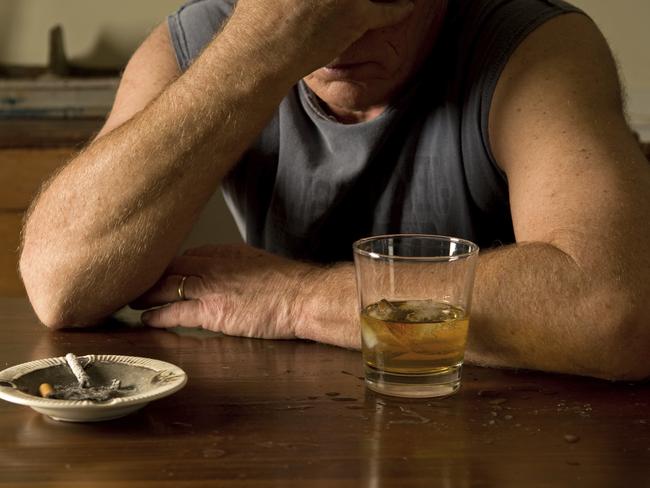FIFO fed my addiction: An ex-employee tells all about drinking on the job
A FIFO worker has revealed how he went from a promising career and owning two properties, to losing everything in a six-month, $130,000 alcohol-fuelled bender.
AT 22, Carl seemed to be living a charmed life.
He had been to a prestigious Perth public school, got a degree and was working in a highly paid job as a fly-in-fly-out worker in WA. He owned two apartments.
Then he lost everything on a six-month alcohol-fuelled bender in the UK, when he guesses he spent around $130,000.
“I was on my way to retiring, and then I had to sell my houses to pay for it,” he told news.com.au. “I lost all my equity. I was a raging alcoholic.”
Carl has left the mining industry and got clean, but he says addiction to drugs or alcohol was common.
“The alcohol restrictions were lenient. All I did was party. I didn’t do any work. I was really loose.
“When there was a test — for crystal meth, alcohol or weed — we just didn’t come in.
“The demand for workers was so strong you couldn’t get sacked even if you got caught several times, as happened to me.”

The industry has come under the spotlight this week after two mines owned by Fortescue Metals Group were raided for drugs.
WA police regional commander Murray Smalpage said more police actions as part of the crackdown could be expected soon.
On Tuesday, around 300 workers arriving by plane at FMG’s Christmas Creek mine in the Pilbara were stopped by police and a sniffer dog for drug tests.
One contractor was issued a summons for possessing drugs without a prescription and another is awaiting further lab tests after returning a “non-negative” result.
The following day, police confirmed that FMG’s Cloudbreak mine site was also being raided.
The Australian Mines and Metals Association says it understands other resource companies will be targeted in the police operation.
Earlier this week, an ex-miner told ABC Radio that FIFO workers used illicit substances like amphetamines on their time off because it couldn’t be detected after a short period of time.
He said very few people brought drugs on to sites.

But for Carl, addiction was a normal part of working life on a WA mine.
“There were two guys there who were raging meth addicts,” he said. “Work played a second role.
“I was paid to do nothing. All I cared about was the paycheck so I could go and party.”
Not only are employees like Carl a danger to themselves, they are a risk to the safety of others, in an unforgiving environment.
Now 30, Carl said he would work drunk and hungover, his eyes red and his productivity at rock-bottom. He said he “fell into” the job, and was one of many who worked there without having experience related to the industry.
“I was very lonely,’ he said. “I didn’t feel I belonged.”

The Cabin Chiang Mai after care provider Cameron Brown told news.com.au he believes the problem with addiction among FIFO workers is getting worse.
“People are stationed away from family and friends, and have little to do in the off-season.
“There’s massive amounts of anxiety, stress and suicide.
“It’s a masculine culture. Some companies are stricter than others.”
While mining companies such as BHP have publicly-available health and safety guidelines on drug-testing, monitoring is managed by the individual mines. Different sites use different providers to carry out the tests.
In October, a 31-year-old contractor was found with $25,000, scales and methamphetamine in his accommodation at FMG’s Hamilton Village in South Hedland.

Police said the latest raids, part of Operation Redwater, are nothing to do with that incident.
But Commander Smalpage said meth was a worry for the force.
“Meth is of concern but so is any other prohibited drugs that they shouldn’t be having on site,” he told Fairfax Media. “Any drugs, whether it is synthetic drugs or otherwise, will be targeted as part of that screening process with the dogs.
“We will get it ... That’s the message — don’t take drugs to the mine site.”
He said police had not ruled out targeting workers’ temporary accommodation in the future.
A spokesperson for Rio Tinto told news.com.au: “The use of illicit drugs is a significant issue for our industry and the wider community.
“We have comprehensive policies, procedures and programs in place across our business. This includes pre-employment, random and causal drug and alcohol testing, as well as preventive education and training programs.
“Rio Tinto has a zero tolerance approach to illicit drugs. We are supporting the efforts of the police to target prohibited drugs in the Pilbara.”



